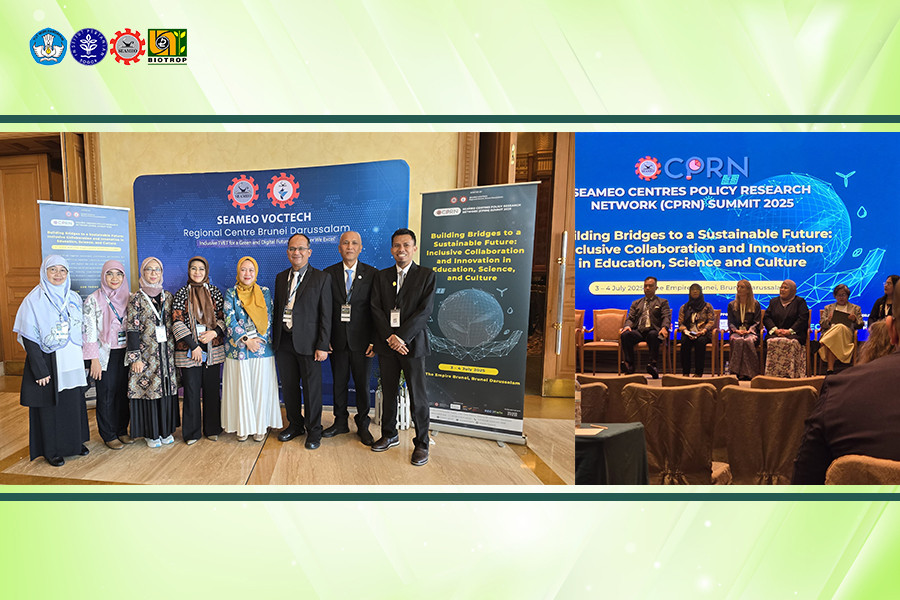SEAMEO BIOTROP participated in the SEAMEO Centers Policy Research Network (CPRN) Summit 2025, held on July 3–4, 2025, at the Empire Hotel, Brunei Darussalam. This event served as a strategic platform for SEAMEO centers in Southeast Asia to present study results and recommendations for education policy directions responsive to regional challenges, such as climate change, environmental degradation, and education quality assessment. The general objectives of CPRN 2025 were (1) to bring together researchers, scientists, experts, practitioners, managers, and leaders from 26 SEAMEO Units, relevant Ministries, universities, and partners from Southeast Asia and beyond to discuss and share ideas on how to apply technology and innovation in education, science, and culture to prepare the region for a future-ready world. The theme of the 2025 CPRN activity was "Building Bridges to a Sustainable Future: Inclusive Collaboration and Innovation in Education, Science, and Culture."
SEAMEO BIOTROP Board of Directors, Dr. Elis Rosdiawati, and Dr. Rernat. Doni Yusri, SP, MM, participated in the activity. During the presentation session, the manager of the Science Innovation Technology Department, Ms. Risa Rosita, S.Si., M.Si., M.Si., presented the results of a study entitled "Adoption of Biodiversity Inclusion Study: Baseline Data for Selected ASEAN Countries and Japan." This study is a collaboration between SEAMEO BIOTROP and the Senior High School at Sakado, University of Tsukuba, Japan, SEAMEO CED, Lao PDR, SEAMEO VOCTECH, Brunei Darussalam, and SEAMEO RECSAM, Malaysia. The study aims to identify the extent to which biodiversity values have been integrated into formal education policies and practices in several ASEAN countries and Japan.
Initial results indicate that most countries have committed to environmental education, but a more systematic and contextual approach is needed to ensure biodiversity inclusivity in curricula, teaching methods, and learning evaluation.
"This study provides important baseline data for formulating regional policies that support biodiversity-based education. This data also shows that biodiversity integration needs to be accompanied by teacher capacity building, the provision of contextual teaching materials, and partnerships between institutions," explained Ms. Risa in her presentation.
Key recommendations from this study include:
- Formulating education policies that explicitly integrate biodiversity into national curriculum standards;
- Strengthening regional networks for sharing good practices between countries;
- Supporting teacher training programs and the development of locally based contextual learning media.
 Monday, 14 July 2025 on 9:01am
Monday, 14 July 2025 on 9:01am